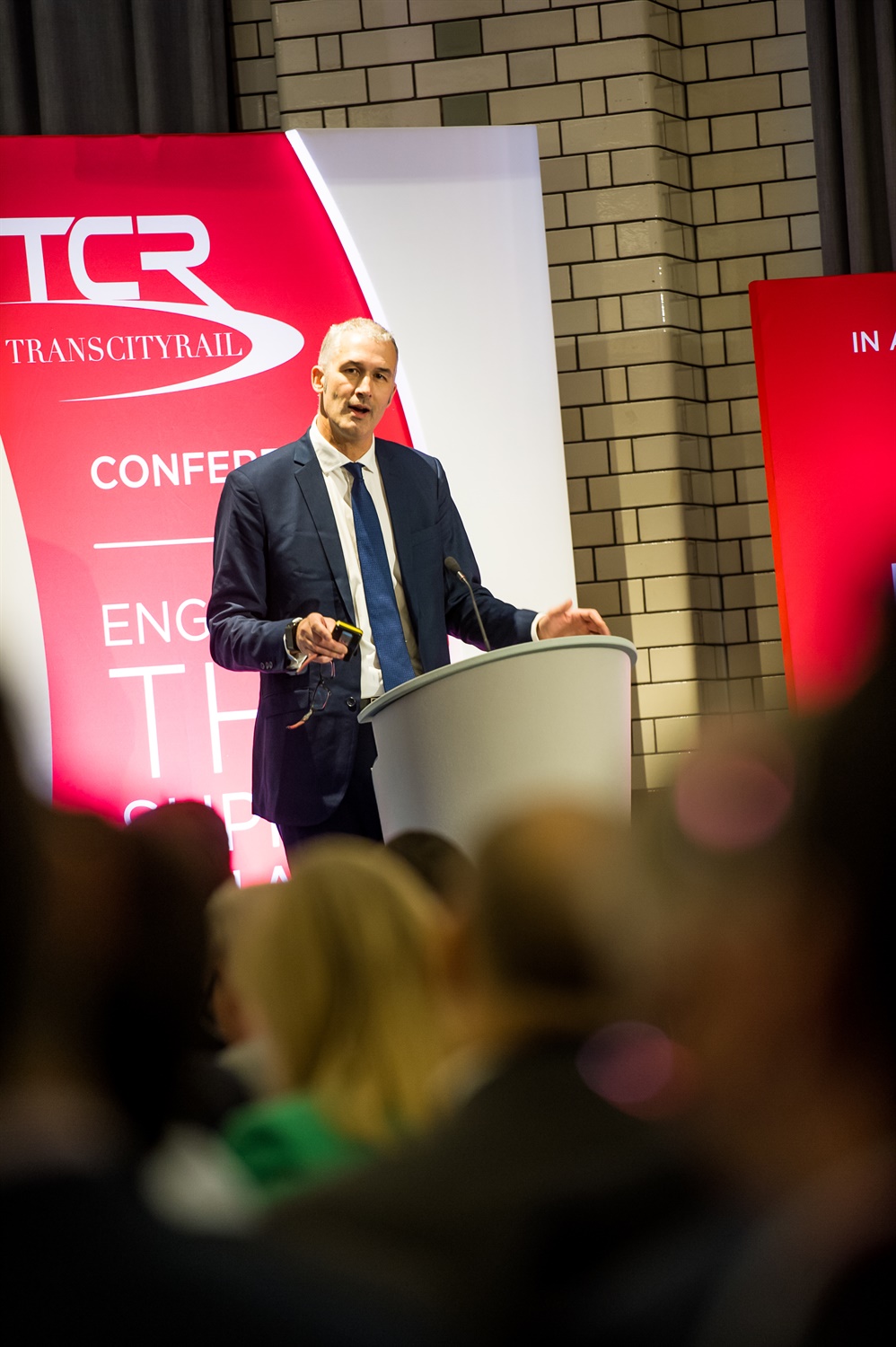06.10.17
Griffiths: Future of northern transport hinges on HS2 links with NPR
The future of transport in the north will be defined by how HS2 and Northern Powerhouse Rail (NPR) will work together, Paul Griffiths, managing director of HS2 Phase 2 has argued.
During an informative address to delegates at the TransCityRail North conference in Manchester yesterday, Griffiths called for an end to the economic imbalance between London and the north, and stated that NPR will be central to HS2’s success in connecting up businesses and passengers in the region.
Having taken over the reigns as managing director of the route between Birmingham and Manchester in September, Griffiths’ speech was a key opportunity to reach out to the suppliers and businesses who will be central to delivering the mammoth £54bn project.
It also came in the same week that chancellor Philip Hammond pledged £300m to improve local connections to HS2 in the north and ensuring the high-speed line can link up to NPR.
“The extra £300m will futureproof HS2 and to build in the provisions to allow NPR to interact with HS2 and that’s really important,” Griffiths told the audience. “It will link with Midland connections and keeps open options for projects like improvements at Manchester Piccadilly.
“Northern Powerhouse has been fantastic in joining up the north and making a single connected market that can compete with a population similar to that of London.”
But Griffiths later went on to say that the key debate was not around how the north and London should compete for infrastructure funding, but rather that the rail networks needed to link up to be as efficient and successful as possible, working as one.
“The future of transport in the north is about HS2 and NPR and what they can achieve together,” the HS2 Phase 2 lead said. “The north will develop capacity and productivity that will allow it to connect from this city here to other cities in the south.
“It will give confidence to the business community and those who want to work in the north, expanding labour markets and creating more job opportunities.
“We are all working together to ensure these major investments do link up and provide better connections. We’re looking forward to working with Transport for the North to further refine their network and take that work to the next stage.”

UK rail should compete with European networks – not each other
Another key point to take away from Griffiths’ speech was that the UK’s rail industry needed to stop bickering between itself about infrastructure funding and instead find ways to compete with other rail networks in countries across Europe.
“London continues to outgrow the north in terms of GDA by a significant margin,” he argued. “Britain has some huge regional disparities, much wider than those in other western nations.
“Many companies are finding it harder to compete working for the north than they do in the south east.
“To a great extent that imbalance is self-reinforcing, as direct investment, R&D spending and even where to put your HQ gravitates towards London and really exacerbates that imbalance.
“We really should not be thinking about competing the north against London – it should be about how we cope with cities in Europe like Hamburg and Leon,” Griffiths continued.
“Those slow links that don’t allow us to compete are something we need to focus on. When we ask businesses about what effect bad transport has on them, they tell us that it’s harder to collaborate, it’s harder to get the supply chain to come to them and it’s harder to get the pool of talent they want to come and work from them.”
The countdown is on to get your entries in for this year’s UKRIA. Closing date is 9 October. ENTER NOW!